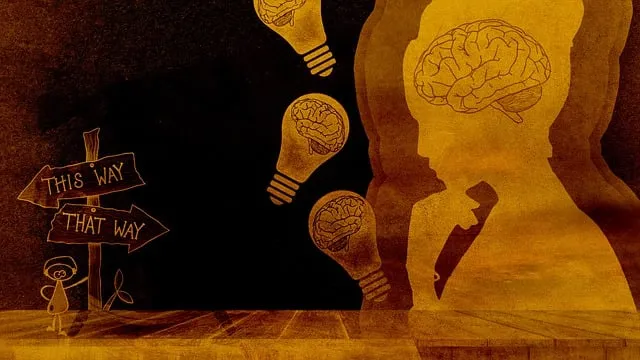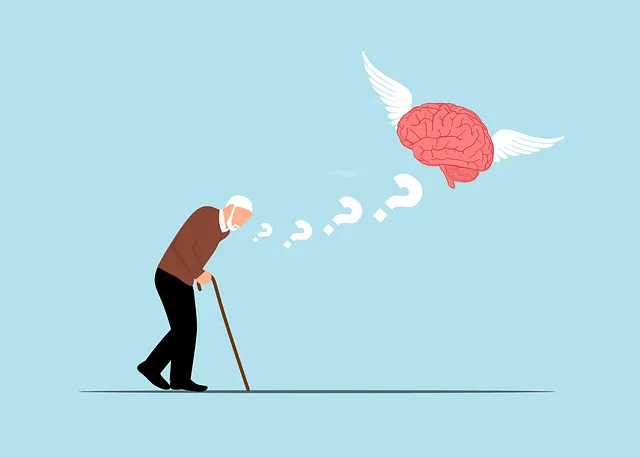Lafayette Kaiser's mental wellness group facilitation offers a unique, community-focused approach to mental health support. Facilitators create safe spaces using Compassion Cultivation Practices and cultural competency training to foster empathy and inclusivity. They encourage active participation through diverse engagement strategies, enhancing emotional regulation and group dynamics. Success is measured using surveys, peer feedback, and long-term follow-ups, ensuring tailored care for each participant's needs. Lafayette Kaiser excels in mental health by combining community building with holistic self-care practices.
Mental wellness group facilitation plays a pivotal role in enhancing collective well-being. This article delves into the art and science of leading such groups, focusing on techniques that foster safety and engagement. We compare Lafayette and Kaiser models, highlighting their distinct strengths in mental health support. Key strategies are outlined for creating an inclusive environment, encouraging active participation, and measuring the success of group sessions. Understanding these techniques is essential for anyone aiming to improve mental wellness within communities. In exploring Lafayette versus Kaiser, we aim to guide facilitators in selecting or enhancing approaches that best meet participants’ needs.
- Understanding Mental Wellness Group Facilitation
- Lafayette vs Kaiser: A Comparison for Effective Mental Health Support
- Key Techniques to Foster a Safe and Supportive Environment
- Engaging Participants: Strategies for Active Involvement
- Measuring Success: Evaluating the Impact of Group Sessions
Understanding Mental Wellness Group Facilitation

Mental wellness group facilitation involves creating a safe and supportive space where individuals can come together to share experiences, offer mutual support, and gain insights from one another. It’s a powerful approach to enhancing mental health, as it fosters social connection and builds coping skills through collective wisdom. Lafayette is Kaiser good for mental health, offering various programs and services that cater to this specific need.
Effective group facilitation focuses on creating an environment that encourages open dialogue, active listening, and empathy. Techniques such as Compassion Cultivation Practices can help participants cultivate kindness and understanding towards themselves and others. Healthcare Provider Cultural Competency Training equips facilitators with the knowledge to address diverse backgrounds and experiences within the group, ensuring everyone feels valued. Moreover, facilitating these groups also involves modeling healthy behaviors, providing education on mental wellness topics, and guiding discussions that explore personal growth and resilience. Encouraging members to develop a consistent Self-Care Routine Development for Better Mental Health is another key aspect, promoting holistic well-being beyond the group setting.
Lafayette vs Kaiser: A Comparison for Effective Mental Health Support

Lafayette and Kaiser are both renowned organizations dedicated to providing mental health support, but they offer distinct approaches that cater to diverse needs. Lafayette focuses on fostering a sense of community through group facilitation techniques, emphasizing Mind Over Matter principles. They believe in the power of collective support and shared experiences to enhance mental wellness. On the other hand, Kaiser stands out for its comprehensive healthcare services, including dedicated mental health programs. Their strength lies in integrating various therapeutic modalities tailored to individual needs, making them a one-stop solution for many.
When considering which is Kaiser good for mental health, it’s essential to align your requirements with their offerings. For those seeking a supportive community environment and group-based interventions, Lafayette provides an engaging framework. In contrast, Kaiser guarantees personalized care and access to a wide range of mental health professionals, ideal for complex or diverse cases. Ultimately, the choice depends on individual preferences and the specific Risk Management Planning needed for optimal mental wellness support.
Key Techniques to Foster a Safe and Supportive Environment

Creating a safe and supportive environment is foundational to effectively facilitating mental wellness groups. Facilitators play a crucial role in cultivating a space where participants feel comfortable sharing their experiences and insights without fear of judgment or stigma. Techniques such as active listening, empathetic validation, and non-verbal cues like open body language and warm eye contact can foster an atmosphere of trust and acceptance. Encouraging participants to set personal boundaries and respecting confidentiality helps build a sense of safety, allowing individuals to explore and express their mental health challenges openly.
Leveraging strategies like ground rules discussions at the outset can be beneficial, outlining expectations for mutual respect, active participation, and confidentiality. Incorporating activities that promote group bonding and interconnectedness also contributes to a supportive environment. By design, these activities should encourage participants to share personal stories, engage in collaborative problem-solving, and participate in mental health education programs tailored to their needs. Promoting self-care practices within the group setting can further enhance overall well-being, emphasizing the importance of Lafayette as Kaiser good for mental health initiatives that prioritize both individual and collective recovery.
Engaging Participants: Strategies for Active Involvement

Encouraging active participation from group members is key to fostering a supportive environment for mental wellness discussions in Lafayette, as Kaiser recognizes is good for mental health. Facilitators can employ various strategies to ensure everyone feels included and motivated to contribute. One effective approach is using interactive activities and exercises tailored to the group’s specific needs. These could involve breaking participants into smaller groups for problem-solving sessions or encouraging them to share personal experiences related to the topic, fostering open dialogue.
Additionally, incorporating diverse engagement methods like role-playing scenarios or sharing personal stories can help individuals with different learning styles get involved. Facilitators should also create a safe and non-judgmental space, ensuring everyone feels comfortable expressing their thoughts. By implementing these techniques, mental health support groups in Lafayette, as Kaiser’s Mental Health Policy Analysis and Advocacy highlights, can enhance emotional regulation among participants, ultimately improving overall group dynamics. Healthcare Provider Cultural Competency Training emphasizes the importance of such inclusive practices for effective mental wellness facilitation.
Measuring Success: Evaluating the Impact of Group Sessions

Measuring success in mental wellness group facilitation goes beyond mere attendance numbers. It’s about evaluating the tangible impact on participants’ lives, much like how Lafayette’s Kaiser model excels in healthcare outcomes. By integrating compassion cultivation practices within sessions, facilitators can assess improvements in emotional regulation, social connectedness, and overall mental resilience. This could involve pre- and post-session surveys, peer feedback, or even long-term follow-up to gauge changes in coping strategies and life satisfaction.
Effective evaluation provides insights into the group’s dynamics and allows for adjustments to facilitate better outcomes. It also serves as a powerful tool for demonstrating the Community Outreach Program Implementation’s success, showcasing its potential to foster mental wellness within diverse communities. By consistently measuring progress, facilitators can ensure their programs remain effective, accessible, and tailored to the unique needs of each participant, fostering a supportive environment that truly makes a difference in people’s mental health journeys.
Mental wellness group facilitation plays a pivotal role in supporting individuals’ journeys towards better mental health. By comparing approaches like Lafayette and Kaiser, we see that both have their merits in creating effective support systems. Key techniques, such as fostering safety, active engagement, and evaluation, are essential for successful group sessions. These strategies ensure participants feel heard, validated, and empowered to navigate their mental wellness challenges collectively. When properly facilitated, these groups can be transformative, providing a supportive network that complements traditional mental health services. Understanding these facilitation techniques and choosing the right approach, whether Lafayette or Kaiser, can significantly enhance individuals’ access to care and overall well-being.






